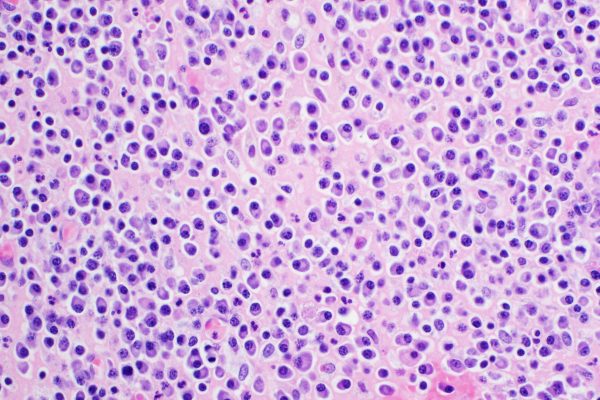
Initial treatment with carfilzomib-lenalidomide-dexamethasone (KRd) regimen, followed by an autologous stem cell transplantation (ASCT), improves clinical benefits in patients with multiple myeloma, compared to KRd alone. According to the results of an interim analysis of the ATLAS trial, published in The Lancet, continuation of KRd regimen after ASCT improves progression-free survival compared to standard lenalidomide.
The treatment of multiple myeloma (MM) has rapidly evolved with the introduction of immunomodulatory drugs (IMiDs) and proteasome inhibitors (PIs). Currently, several triplet combinations of these agents are used as induction therapy for patients with newly diagnosed MM. A subsequent autologous stem cell transplantation (ASCT) was shown to further increase the clinical benefits of this therapy. After ASCT, however, the optimal maintenance treatment is still subject to debate. In this respect, the phase 3 ATLAS trial compares the efficacy and safety of maintenance therapy with carfilzomib, lenalidomide, and dexamethasone (KRd) vs. lenalidomide alone in this patient population.
The phase 3 ATLAS trial enrolled 180 adult patients coming from twelve academic and clinical centres in the USA and Poland. The participants had newly diagnosed MM and had received induction therapy for up to twelve months followed by a single ASCT and achieved stable disease or better within 100 days afterwards. Patients were randomly assigned (1:1) to receive up to 36 cycles of carfilzomib, lenalidomide, and dexamethasone (n=93) or lenalidomide alone (n=87) until disease progression or unacceptable toxicity as maintenance therapy. The primary endpoint was progression-free survival (PFS).
With a median follow-up of 33.8 months, the median PFS was reported at 59.1 months in the KRd group vs. 41.4 months in the lenalidomide group (HR[95%CI]: 0.51[0.31-0.86]; p=0.012). The most common grade 3/4 adverse events were neutropenia (48% vs. 52% in the KRd and lenalidomide groups, respectively), thrombocytopenia (13% vs. 7%), and lower respiratory tract infections (8% vs. 1%). Serious adverse events were reported in 30% vs. 22% of patients. One treatment-related adverse event led to death (respiratory failure due to severe pneumonia) in the KRd group.
Reference